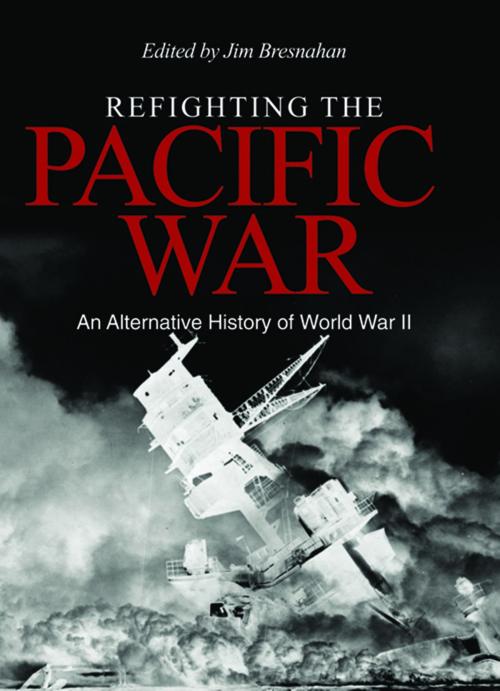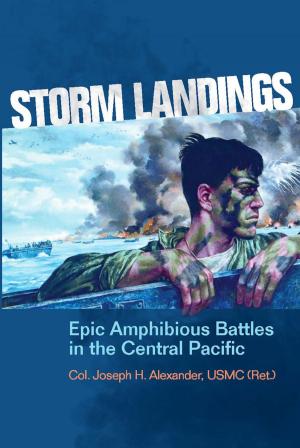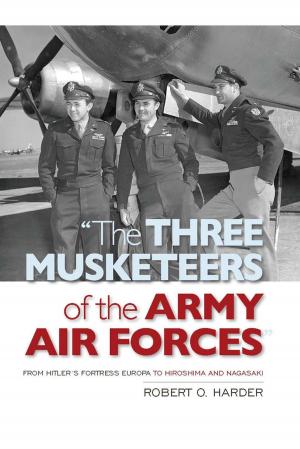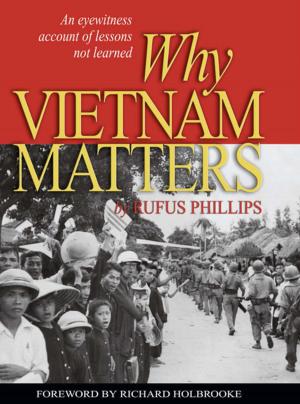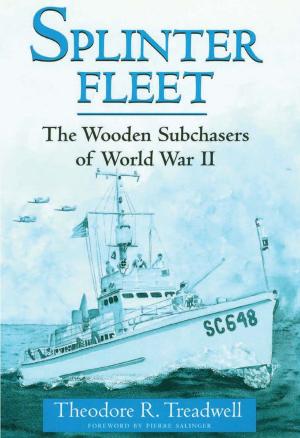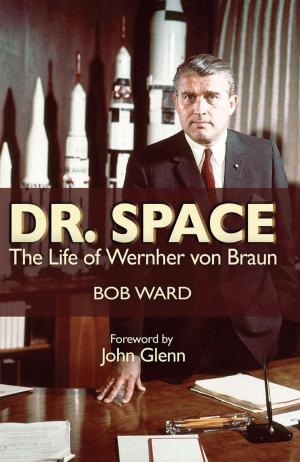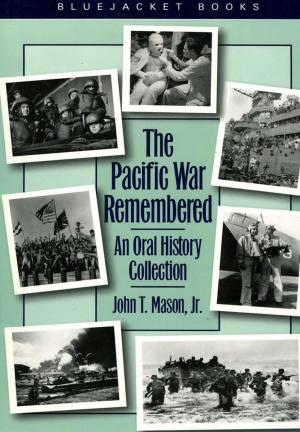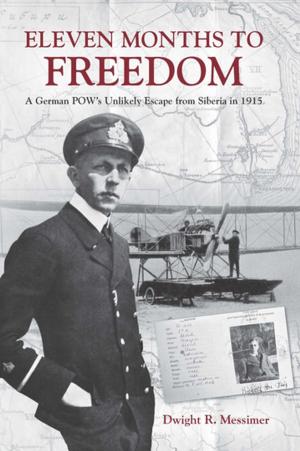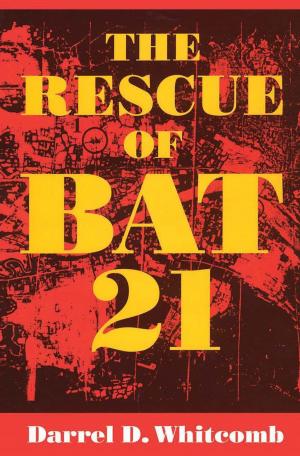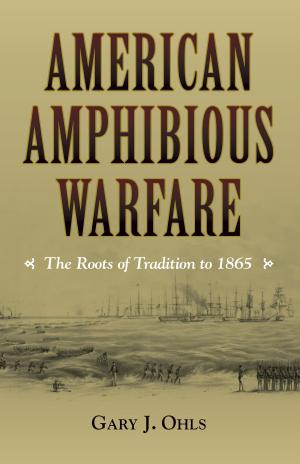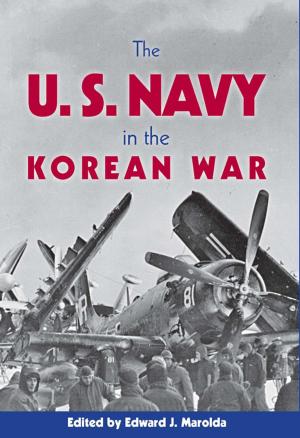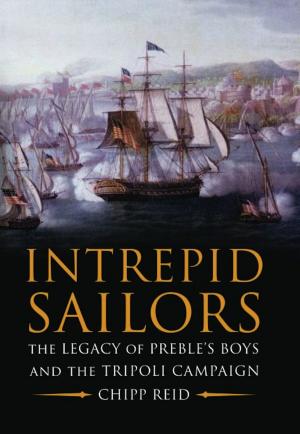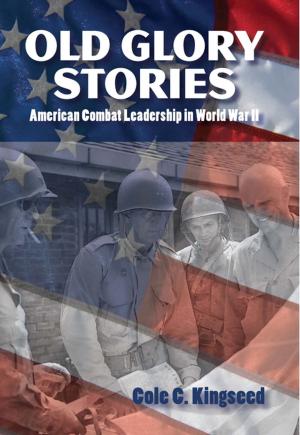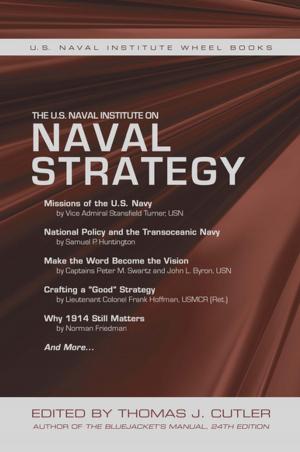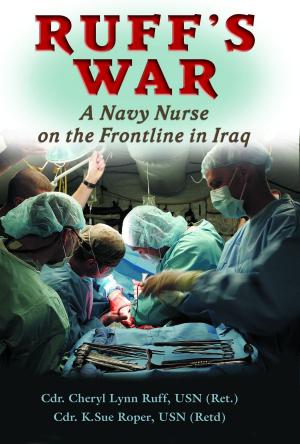Refighting the Pacific War
An Alternative History of World War II
Nonfiction, History, Military, World War II| Author: | James C. Bresnahan | ISBN: | 9781612510682 |
| Publisher: | Naval Institute Press | Publication: | September 15, 2011 |
| Imprint: | Naval Institute Press | Language: | English |
| Author: | James C. Bresnahan |
| ISBN: | 9781612510682 |
| Publisher: | Naval Institute Press |
| Publication: | September 15, 2011 |
| Imprint: | Naval Institute Press |
| Language: | English |
Refighting the Pacific War presents the viewpoints of more than thirty historians, authors, and veterans regarding what happened and what might have happened if events in the Pacific had unfolded differently during World War II. Contributors to this alternative history include the noted military historians William Bartsch, John Burton, Donald Goldstein, John Lundstrom, Robert Mrazek, Jon Parshall, Douglas Smith, Peter Smith, Barrett Tillman, Anthony Tully, and H. P. Willmott. In chapters organized in a roundtable discussion format, the contributors present their differing views on the possible outcomes of the major campaigns of the Pacific War and the implications of those changes on the course of history. The result is a thought-provoking collection of divergent views about the outcome of the war that will be certain to stimulate debate.
The naval campaigns and battles discussed include Pearl Harbor, Coral Sea, Midway, Guadalcanal, Philippine Sea, and Leyte Gulf. Additionally, the book delves into key island battles like Tarawa, Saipan, Iwo Jima, and Okinawa, as well as prewar and postwar political issues: Could Japan have inflicted even greater damage at Pearl Harbor? How might Admiral Yamamoto have achieved victory at Midway? What would have been the impact of that victory on the direction of the war? These are just some of the discussion points posed in Refighting the Pacific War. In addition, the book explores whether the war was inevitable, includes an extensive study of the opening year of the war when the Japanese war machine seemed unstoppable, and considers if the conflict could have ended without the use of the atomic bomb.
Vice Admiral Yoji Koda, Japan Maritime Self Defense Force (Ret.), Yamamoto’s successor as commander of Japan’s combined fleet and a pillar of the postwar alliance between the United States and Japan, provides the book’s introduction, in which he places the book in the context of the frequently told stories and views from the Japanese side.
The naval campaigns and battles discussed include Pearl Harbor, Coral Sea, Midway, Guadalcanal, Philippine Sea, and Leyte Gulf. Additionally, the book delves into key island battles like Tarawa, Saipan, Iwo Jima, and Okinawa, as well as prewar and postwar political issues: Could Japan have inflicted even greater damage at Pearl Harbor? How might Admiral Yamamoto have achieved victory at Midway? What would have been the impact of that victory on the direction of the war? These are just some of the discussion points posed in Refighting the Pacific War. In addition, the book explores whether the war was inevitable, includes an extensive study of the opening year of the war when the Japanese war machine seemed unstoppable, and considers if the conflict could have ended without the use of the atomic bomb.
Vice Admiral Yoji Koda, Japan Maritime Self Defense Force (Ret.), Yamamoto’s successor as commander of Japan’s combined fleet and a pillar of the postwar alliance between the United States and Japan, provides the book’s introduction, in which he places the book in the context of the frequently told stories and views from the Japanese side.
Refighting the Pacific War presents the viewpoints of more than thirty historians, authors, and veterans regarding what happened and what might have happened if events in the Pacific had unfolded differently during World War II. Contributors to this alternative history include the noted military historians William Bartsch, John Burton, Donald Goldstein, John Lundstrom, Robert Mrazek, Jon Parshall, Douglas Smith, Peter Smith, Barrett Tillman, Anthony Tully, and H. P. Willmott. In chapters organized in a roundtable discussion format, the contributors present their differing views on the possible outcomes of the major campaigns of the Pacific War and the implications of those changes on the course of history. The result is a thought-provoking collection of divergent views about the outcome of the war that will be certain to stimulate debate.
The naval campaigns and battles discussed include Pearl Harbor, Coral Sea, Midway, Guadalcanal, Philippine Sea, and Leyte Gulf. Additionally, the book delves into key island battles like Tarawa, Saipan, Iwo Jima, and Okinawa, as well as prewar and postwar political issues: Could Japan have inflicted even greater damage at Pearl Harbor? How might Admiral Yamamoto have achieved victory at Midway? What would have been the impact of that victory on the direction of the war? These are just some of the discussion points posed in Refighting the Pacific War. In addition, the book explores whether the war was inevitable, includes an extensive study of the opening year of the war when the Japanese war machine seemed unstoppable, and considers if the conflict could have ended without the use of the atomic bomb.
Vice Admiral Yoji Koda, Japan Maritime Self Defense Force (Ret.), Yamamoto’s successor as commander of Japan’s combined fleet and a pillar of the postwar alliance between the United States and Japan, provides the book’s introduction, in which he places the book in the context of the frequently told stories and views from the Japanese side.
The naval campaigns and battles discussed include Pearl Harbor, Coral Sea, Midway, Guadalcanal, Philippine Sea, and Leyte Gulf. Additionally, the book delves into key island battles like Tarawa, Saipan, Iwo Jima, and Okinawa, as well as prewar and postwar political issues: Could Japan have inflicted even greater damage at Pearl Harbor? How might Admiral Yamamoto have achieved victory at Midway? What would have been the impact of that victory on the direction of the war? These are just some of the discussion points posed in Refighting the Pacific War. In addition, the book explores whether the war was inevitable, includes an extensive study of the opening year of the war when the Japanese war machine seemed unstoppable, and considers if the conflict could have ended without the use of the atomic bomb.
Vice Admiral Yoji Koda, Japan Maritime Self Defense Force (Ret.), Yamamoto’s successor as commander of Japan’s combined fleet and a pillar of the postwar alliance between the United States and Japan, provides the book’s introduction, in which he places the book in the context of the frequently told stories and views from the Japanese side.
